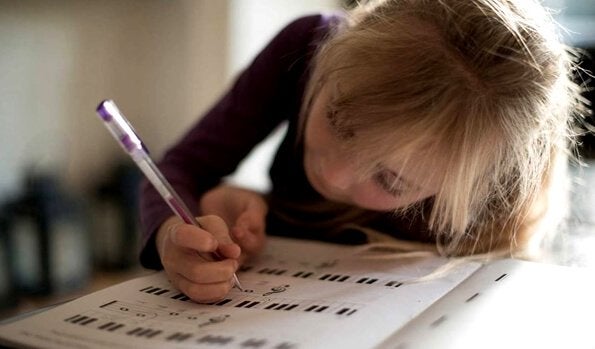You can’t talk about learning without talking about the education system, they are two very related realities that are conditioned, a first element, certainly problematic, is the name of slow learning, which is problematic because it defines an ideal speed parameter, but is strictly referred to this educational system.
Much of the global education system is strictly standardized, i. e. they define what, how and when each person should learn, and define specific ways of analyzing whether or not learning has been assimilated.
“Learning a lot of things doesn’t nurture intelligence. -Heráclito de Epheso-
It is from this system that it establishes what is slow and what is not, is based on the idea that the system is correct and that, if the individual responds to what he asks, then it works correctly, if not, then the individual has a deficit or a characteristic of “correct”. This is when labels are formulated as ‘slow’, ‘fast’, ‘smart’ or not. And the worst thing is that it’s on these foundations that a whole path is built for success or failure in school.
It’s a real story. A third grader started the school year with difficulty reading and writing quickly. His teacher often referred to him as the worst student in the class. I used to write a text on the board for the children to copy. He always ended up after his teammates.
Since they couldn’t wait for it, the teacher simply erased the board and asked him to catch up by borrowing another colleague’s notebook. One day, after this ritual, the teacher could not find the gum, the child had taken it and hidden it without it. no one noticed. She finished copying, got up, and cleaned the board.
Can we say this kid wasn’t smart? If we define intelligence as the ability to use the information available to solve problems, we must conclude that it was a brilliant act, this required an analysis process that included defining a problem, analyzing alternatives, and proposing it was also an ethical gesture, because at no point did it want to hide its action, but to emphasize its right to have the same opportunities as others.
The child in our history has been punished for his act. He did it? Others and defied the teacher’s orders. She just wanted all the children to be able to copy the text at most.
All teachers and the educational system preach that learning is an integral reality, involving cognitive but also emotional, relational, symbolic processes, at least that is what they theoretically admit. However, how many teachers take into account the child’s life context to establish under what real conditions does he learn?
In Bogota, Colombia, a learning test was carried out in a public school, using Jean Piaget’s teaching methods, for this teacher was not important the content of the learning, but the mental process involved, so in this school Notes, notes and subjects were removed, there was a list of classes and each child got what he wanted, and they have never been digitally evaluated for that.
The results were amazing. The children were highly motivated, they could attend the same course several times if they wanted and were encouraged to attend, the performance has increased significantly and the learning has been much more effective, as they were neither approved nor disapproved, the children were more spontaneous when they asked what they did not understand. And they felt that school was their favorite place. Something similar happened with the so-called? Miracle School? Barcelona.
Thus, before cataloguing as sick or stigmatizing a child who has slow learning, attention deficit, intellectual retard delay, etc. , it is also necessary to make a diagnosis about the educational system from which he is judged and labeled.
It is also practical to analyze the child’s context. Does anything happen in your family or individual life that makes you anxious or depressed?Does your environment make learning easier? In addition to neurological considerations, we still have a lot to discuss on this topic before classifying something as a slow learning pace.

